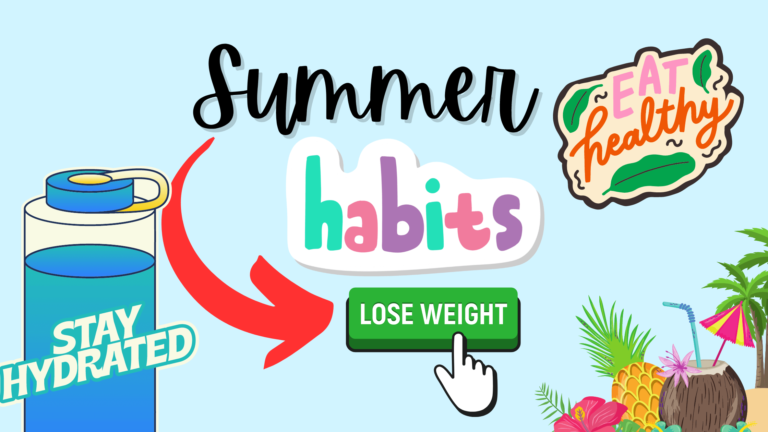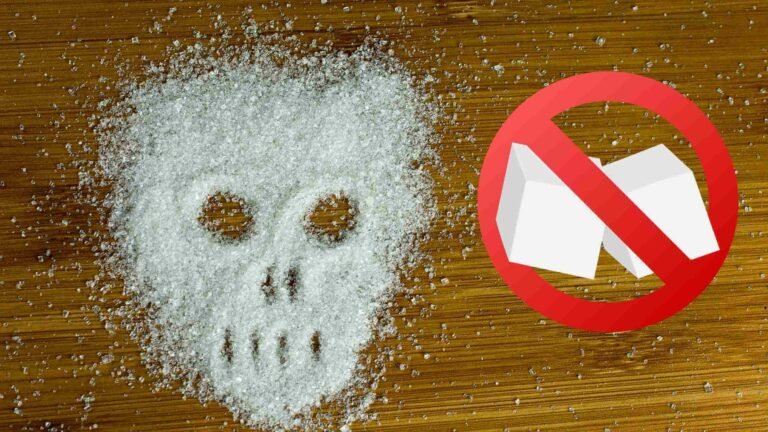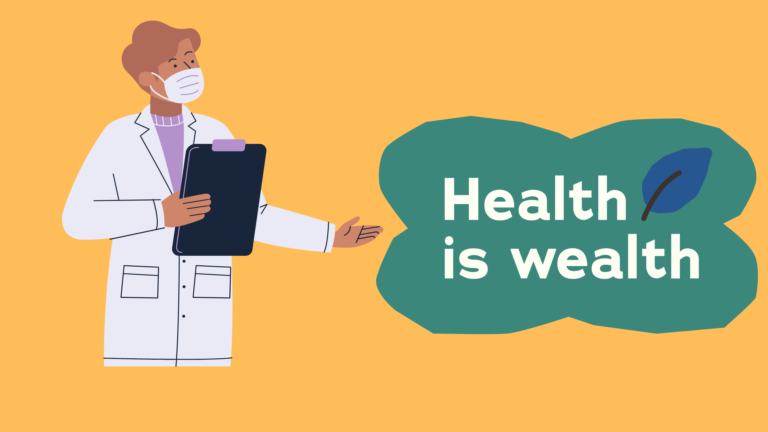14 Vitamins for over 40, What vitamins should a 40-year-old take?
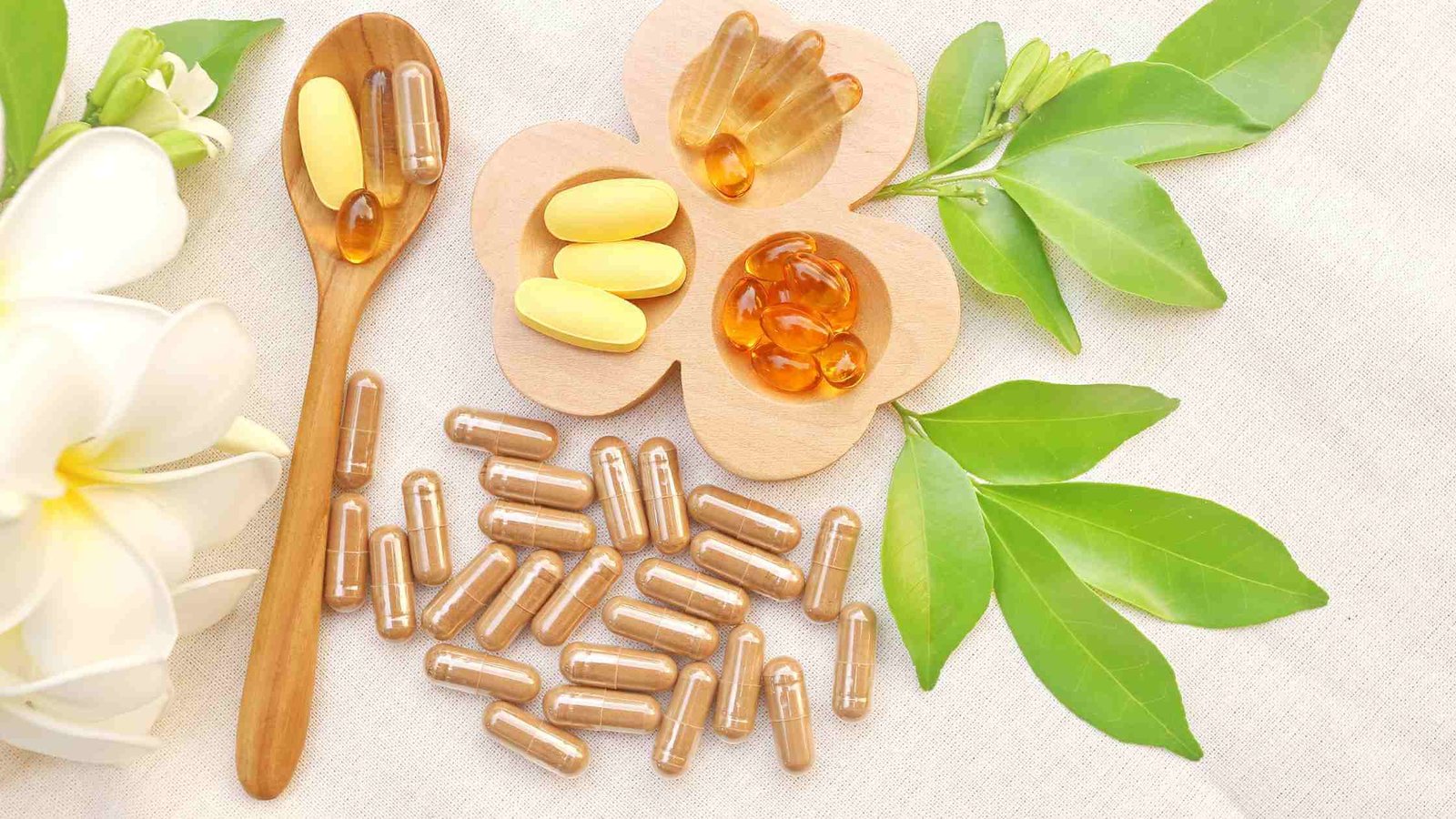
Consider vitamins and nutrients as an army to combat age-related illnesses. According to Kristin Kirkpatrick, MS, RD, manager of wellness nutrition programs at the Cleveland Clinic Wellness Institute, eating a balanced, healthy diet is the best approach to creating this army.
While eating healthfully is necessary at all times, it becomes much more crucial around the age of 40 because that is when the rules begin to alter.
Your body probably doesn’t function the same way at 40 as it did at 20. Your fighting strategy needs to start changing as your muscle mass starts to decrease, you’re far more likely to gain weight, menopause may or may not occur, and your risk of chronic diseases like cancer, heart disease, and diabetes starts to rise.
One approach is eating a nutritious diet, which can help you receive enough of the right vitamins and nutrients. Food sources are typically (but not always) a better bet than supplements since they are better absorbed, according to Kirkpatrick. The most effective ways to obtain each of the important nutrients are listed below.
Essential Vitamins for over 40 ( Male and Female )
1. B12 vitamin
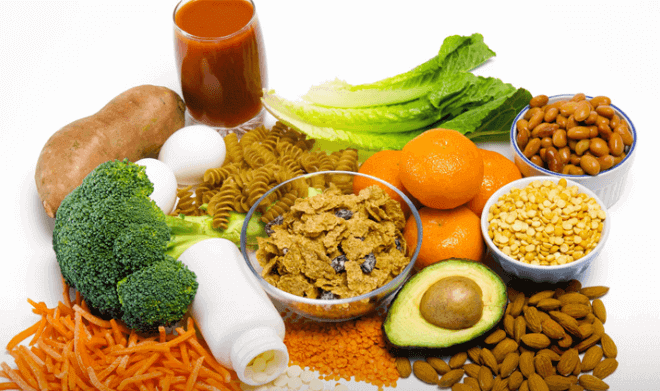
Vitamin B12 should be on your radar once you age 40 (and most obviously once you turn 50). Kirkpatrick claims that it is necessary for healthy blood and brain function.
And while B12 is found in meat and animal products like chicken, fish, dairy, and eggs, children and younger adults are likely to acquire the B12 they need from food, B12 is more poorly absorbed as the body ages, often starting at about 50 because that’s when stomach acid levels fall.
It is a good idea to start taking a multivitamin or supplement containing B12 whenever you reach the age of 40 but before you hit 50. 2.4 mg per day is the target to aim for (the current recommended dietary amount), but Kirkpatrick emphasizes that there’s no need to worry about taking too much. You excrete what you don’t need because it’s a water-soluble vitamin through urination.
Good sources of vitamin B12
- Animal liver and kidneys
- Clams
- Sardines
- Tuna
- Salmon
- Eggs
- Beef
- Fortified cereal
- Source
2. Calcium
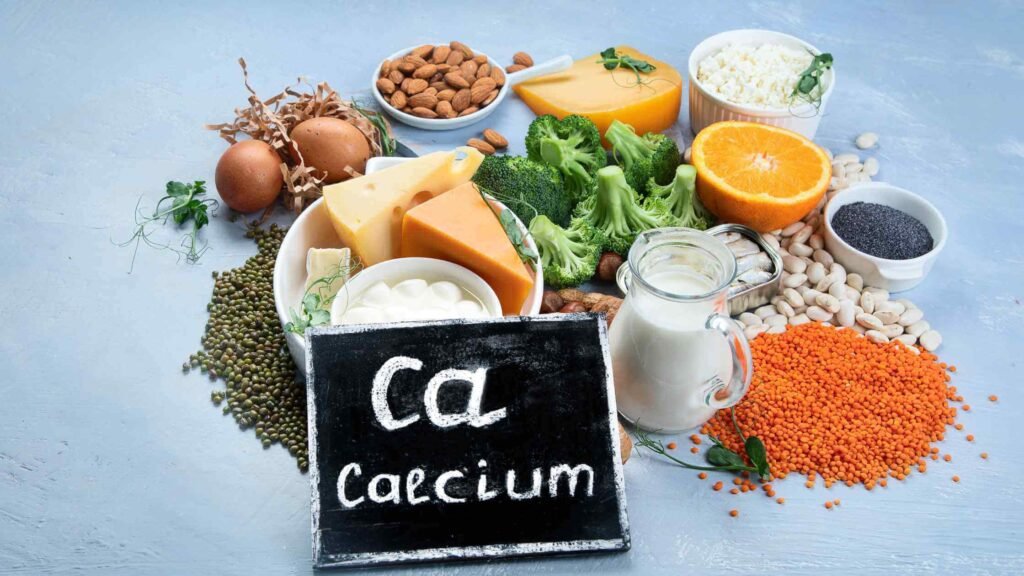
“Curcumin has been shown in animal tests to inhibit colon cancer by destroying cancer cells without harming healthy ones.
Because colon cancer is the second most lethal cancer in the United States and its incidence rises after age 40, these findings show promise for usage in humans “Diana Gariglio-Clelland, RD, a certified dietitian, comments on the topic for NextLuxury.com.
It is not unexpected that countries, where turmeric is often used, had lower rates of colon cancer given the potent anti-inflammatory qualities of this spice.
Gariglio-Clelland suggests taking black pepper extract (piperine) with your turmeric tablets to increase absorption.
Good sources of Calcium:
- Dairy (cow, goat, sheep) and fortified plant-based milk
- Yogurt.
- Cheese.
- Almonds.
- Soya beans
- Calcium-fortified orange juice.
- Winter squash.
- Edamame (young green soybeans); Tofu, made with calcium sulfate.
- Canned sardines, salmon (with bones)
- Source
3. Vitamin C

As we become older, our bodies take more of a hammering from environmental hazards like air pollution and ultraviolet light, as well as our own metabolic byproducts, which can be oxidized to free radicals (sunlight).
By the time we reach 40, the damage from free radicals may have already done significant internal and external damage. According to the National Institutes of Health, vitamin C (or ascorbic acid) can help protect our cells from these wrinkle-inducing free radicals. The body needs it to produce collagen, a protein that speeds up the mending process, and it also aids the immune system.
Good Sources of Vitamin C:
- Citrus (oranges, kiwi, lemon…)
- Bell peppers.
- Strawberries.
- Tomatoes.
- Guava, raw
- Papaya
- Broccoli
- Cruciferous vegetables (broccoli, Brussels sprouts, cabbage, cauliflower)
- White potatoes.
- Source
4. B-Complex
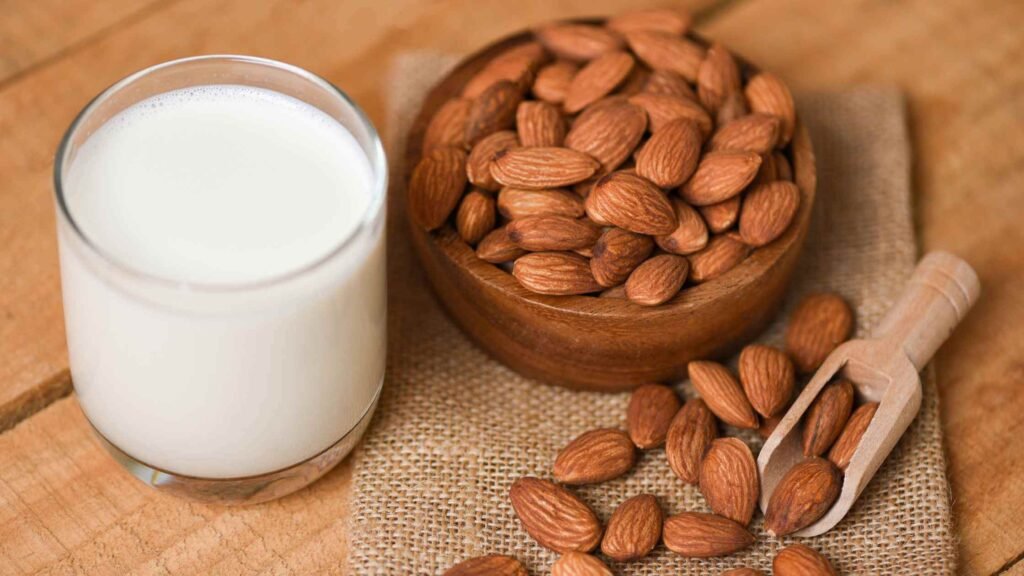
Alana Kessler, RD, a registered dietitian located in New York, explains that adequate B vitamin intake is essential for maintaining the body’s cellular and organ system operations working smoothly, given that aging can change organ function.
Jeffrey Gladd, MD, an integrative medicine specialist and member of the Care/of the scientific advisory board, explains that B vitamins function both together and individually to deliver benefits such as combating free radicals, enhancing good cholesterol, and boosting energy. Looking for further strategies to delay the aging process? ( Source ) .
Good sources of B-Complex
- Salmon
- Eggs
- Milk
- Legumes
- Chicken and Turkey
- Sunflower Seeds
- Leafy Greens
- Beef
- Liver and Other Organ Meats
- Source
Tip. Always read the labels of supplements to determine whether there are any cautions that would make them unsuitable for you. Before beginning anything new, it is always a good idea to consult a medical professional if you have any medical concerns or take any drugs or other supplements.
5. Lutein
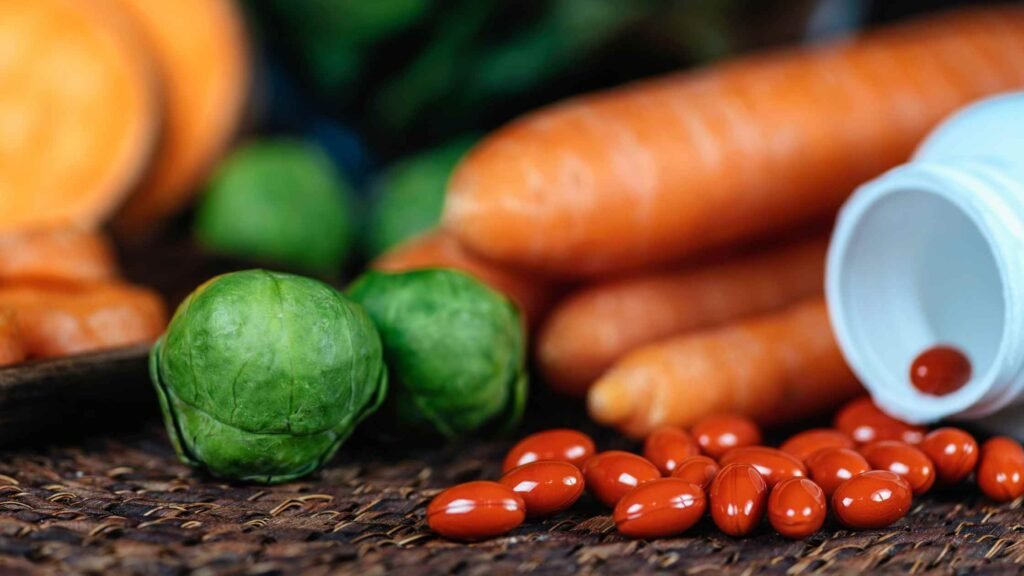
It is crucial to consume enough lutein at any age, but especially after age 50. Carotenoid is essential for eye health and may lessen the risk of age-related macular degeneration (AMD).
According to Jackie Newgent, RDN, gourmet nutritionist and author of The All-Natural Diabetes Cookbook, macular degeneration causes damage to the macula, which is essential for clear, central vision. It appears that lutein has a role in delaying this harmful effect.
Good Sources of lutein
- Spinach. …
- Romaine Lettuce. …
- Corn.
- Eggs.
- Bell Peppers. …
- Parsley. …
- Pistachios. …
- Source
6. Collagen
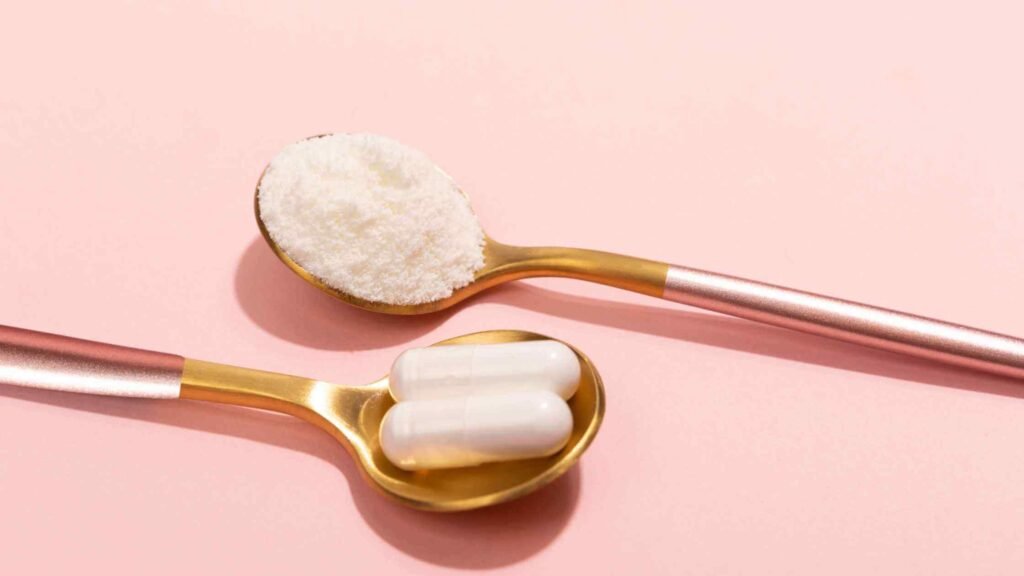
Collagen is another anti-aging substance worth considering. Kylie Ivanir, MS, RD, who owns the private clinic Within Nutrition, recommends taking a high-quality, wild-caught marine collagen supplement.
“The body starts to create less collagen around age 40, therefore collagen supplements can be helpful,” she says. Structure and flexibility are provided by collagen, a protein found in abundance in bones, muscles, skin, tendons, and ligaments.
The lack of collagen in your body can start to show as you get older. Ivanir explains that losing collagen can make skin saggier and more prone to wrinkles. “Reduced collagen levels have been linked to an increase in joint pain and stiffness. Marine collagen supplements are slightly more absorbable by the body than their bovine counterparts, thus I recommend them.”
Good sources of Collagen
- chicken.
- Fish
- Egg whites.
- Garlic
- Citrus fruits.
- . Tropical fruits.
- Berries
- Garlic.
- Source
7. Chromium
Taking chromium supplements could assist if you’ve noticed a slowdown in your metabolism. Having a healthy blood sugar level allows your body to better absorb and distribute the nutrients from the food you eat.
This mineral has a function in regulating blood sugar. The National Institutes of Health suggests that this may help reduce appetite and food consumption while increasing muscle mass and facilitating fat loss.
Good sources of Chromium
- Grape juice
- Whole wheat flour
- Green beans
- Brewer’s yeast
- Orange juice
- Beef
- Apples
- Tomato juice
- Source
8. Vitamin D
Vitamin D is important, according to Kirkpatrick, especially beyond age 40 since it helps fend off changes brought on by aging. Age-related increases in the risk of diabetes, heart disease, multiple sclerosis, breast cancer, and colorectal cancer have all been associated with vitamin D deficiency. D is also necessary for the body to absorb calcium, according to her. ( source )
Fish, fortified dairy products, grains, and cereals are dietary sources of D, however, D obtained from food is typically not well absorbed.
The best source of vitamin D is the sun, but Kirkpatrick notes that not everyone lives close enough to the equator to be exposed to the potent rays that will provide the D you require.
She claims that if you reside somewhere higher than Georgia, you probably don’t get enough vitamin D from the sun. Additionally, wearing sunscreen prevents you from absorbing it, and you shouldn’t go outside in the sun without it (despite any vitamin D benefits).
She advises taking a D3 supplement (D3 being the type of vitamin D closest to what you would get from the sun). The latest National Institutes of Health recommendations state that you should be consuming at least 600 IU per day (and 800 IU per day after the age of 50). Up to 4,000 IU per day is the permissible upper limit (i.e., the amount that won’t harm you).
Table 2: Recommended Dietary Allowances (RDAs) for Vitamin
| Age | Male | Female | Pregnancy | Lactation |
|---|---|---|---|---|
| 0-12 months* | 10 mcg (400 IU) | 10 mcg (400 IU) | – | – |
| 1–13 years | 15 mcg (600 IU) | 15 mcg (600 IU) | – | – |
| 14–18 years | 15 mcg (600 IU) | 15 mcg (600 IU) | 15 mcg (600 IU) | 15 mcg (600 IU) |
| 19–50 years | 15 mcg (600 IU) | 15 mcg (600 IU) | 15 mcg (600 IU) | 15 mcg (600 IU) |
| 51–70 years | 15 mcg (600 IU) | 15 mcg (600 IU) | – | – |
| >70 years | 20 mcg (800 IU) | 20 mcg (800 IU) | – |
Good sources of Vitamin D
- Cod liver oil.
- Swordfish.
- Salmon
- Tuna fish.
- Orange juice
- Dairy and plant milk
- Beef liver.
- Sardines.
- Source
9. Magnesium

Magnesium has a significant role in blood pressure regulation, which is crucial for women over 40 who are already at risk of excessive blood pressure owing to aging.
According to Kirkpatrick, magnesium deficiency has been associated with heart disease, diabetes, and inflammation. Additionally, it aids in calcium absorption and supports healthy heart, muscle, and nerve function as well as blood sugar regulation.
If you suspect a magnesium deficiency, your doctor can check your levels (and would need a supplement). But according to Kirkpatrick, if you follow a healthy, balanced diet, you’re likely to consume enough food to meet your daily magnesium needs (320 mg for women 40 and older).
Magnesium is a mineral that may be found in dark leafy greens, beans, soy, nuts, seeds, and avocados. While taking too much magnesium may produce cramps, nausea, and diarrhea, it does not necessarily pose health dangers.
Good sources of Magnesium
- Dark chocolate
- Nuts
- Whole grains
- Avocados
- Bananas
- Seeds
- Legumes
- Source
10. Potassium
No of your age, potassium is important for maintaining blood pressure control, according to Kirkpatrick. Research has shown that postmenopausal women who consume more potassium through food have a lower risk of stroke, albeit “high” intake was defined as 3.1 g, which is still less than the daily recommended amount of 4.7 g.
According to research author Sylvia Wassertheil-Smoller, Ph.D., a professor in the department of epidemiology and population health at Albert Einstein College of Medicine, the advantages were observed in those receiving as little as 2 g daily.
Although Kirkpatrick advises against using potassium supplements unless your doctor prescribes them for another medical problem, potassium is undoubtedly a vitamin you should be receiving enough of.
A high potassium intake can harm the heart and the digestive system and lead to cardiac arrhythmias that could be fatal. A diversified, balanced diet that includes foods like bananas, sweet potatoes, chard, beans, and lentils will typically provide most people with all the potassium they require.
According to Kirkpatrick, it’s quite improbable that you consume enough potassium in your diet to be harmful. Your doctor should closely evaluate your effects if she decides to give supplements, according to the expert.
Good sources of Potassium
- Dried fruits
- Beans, lentils.
- Beet greens.
- Winter squash
- Potatoes.
- Spinach, broccoli.
- Avocado.
- Bananas.
- Source
11. Omega-3s
Even though they aren’t technically vitamins, omega-3 fatty acids still belong on this list due to their numerous health advantages, according to Kirkpatrick, particularly because they work to counteract some of the negative effects of aging, such as an increased risk of heart disease and cognitive decline.
According to research, omega-3 fatty acids help keep memory and thinking sharp, lower blood pressure and levels of LDL (“bad”) cholesterol, as well as reducing the risk of heart disease.
In fact, a recent study discovered that individuals with higher blood levels of omega-3 fatty acids had larger brains and performed better on memory tests, planning activities, and abstract thinking compared to those with lower levels—which suggests that omega-3 fatty acids play a role in maintaining brain health in addition to the other known benefits, according to the study’s lead author, Zaldy S. Tan, MD, MPH, medical director of the Alzheimer’s and Dementia Care Program.
Although foods like fish, walnuts, flaxseeds, and green vegetables include omega-3s, Kirkpatrick says taking a supplement is a smart way to ensure you’re receiving enough.
Aim for 500 mg if you’re in good health, 800 to 1,000 mg if you have heart disease, and 2,000 to 4,000 mg if your triglyceride levels are high. And if you’re on anticoagulant medications, which might have major adverse effects, make sure to ask your doctor about the appropriate dosage.
Good sources of Omega-3s
- Salmon
- Sardines
- Caviar
- Walnuts
- Soybeans
- Source
12. Probiotics

Although technically neither vitamins nor minerals, probiotics are crucial nutrients for women 40 and older, according to Kirkpatrick. Probiotics may help maintain gut health, prevent weight gain, and even reduce the risk of heart disease, diabetes, and stroke.
This is particularly essential around the age of 40 when muscle mass starts to decline and makes it easier to gain weight and develop insulin resistance.
Although you can find some dairy and fermented soy items like seitan that include probiotics, foods normally do not contain as many strains as supplements do, and each strain has a different set of advantages.
For instance, some strains may help you lose weight while others may prevent diarrhea. Additionally, since probiotics are genuine living, active cultures, you cannot obtain them from meals that have been heated or cooked.
Good sources of Probiotics
- Yogurt
- Pickles
- Olives
- Fermented cheeses
- Apple cider vinegar
- Source
13. Melatonin
The pineal gland secretes the hormone melatonin, which regulates your circadian rhythm by helping you sleep when it’s dark and keeping you awake when it’s light. According to the Mayo Clinic, melatonin production declines with age, and this decline may cause serious health issues beyond just making you feel sleepy all the time.
Adults who slept for less than seven hours per night were more likely to report 10 chronic health conditions, such as heart disease, diabetes, and depression, compared to those who slept for seven hours or more per night, according to a review published in the journal Neuroscience & Biobehavioral Reviews in 2017.
The time it takes to fall asleep, the overall amount of time spent sleeping, and the quality of sleep can all be enhanced by taking a melatonin supplement.
Good sources of Melatonin
- Milk
- Oji Berries
- Fish
- Nuts
- Eggs
- Source
14. Fiber
You undoubtedly already know that fiber is healthy. But did you realize that it becomes even more crucial as you age? Fiber protects against strokes, promotes regular bowel movements, and reduces cholesterol and blood sugar levels — major benefits for aging bodies.
Women over the age of 50 should consume at least 21 grams of protein per day, while males require 30 grams; nevertheless, the majority of individuals do not meet this requirement. This is equivalent to six to eight servings of whole grains or eight to ten servings of veggies.
Good sources of Fiber
- Beans. L
- Broccoli.
- Berries.
- Apples.
- Popcorn.
- Avocados.
- Dried Fruits.
- Whole Grains.
- Source
Final Thoughts
To sustain maximum health, people over 40 require enough levels of vitamins A, C, D, E, K, and B-complex vitamins. Your body requires these nutrients for organ and muscle development, digestion, and neurological function.
If you use nutritional supplements, check the labels to ensure that they do not exceed the tolerated upper limits defined by the Institute of Medicine; this will assure your safety and maximize your benefits.
Note that this material is not meant to cover all possible uses, precautions, interactions, or bad effects; rather, it is meant to supplement, not replace, the advice of your doctor or healthcare professional. You should consult with your doctor before making any changes based on this advice. Never disregard expert medical advice or delay in getting it because of something you read ; always consult your actual doctor or other certified health providers first. Before beginning any new course of therapy or before discontinuing an existing one, you should discuss your options with your doctor or another healthcare provider.

